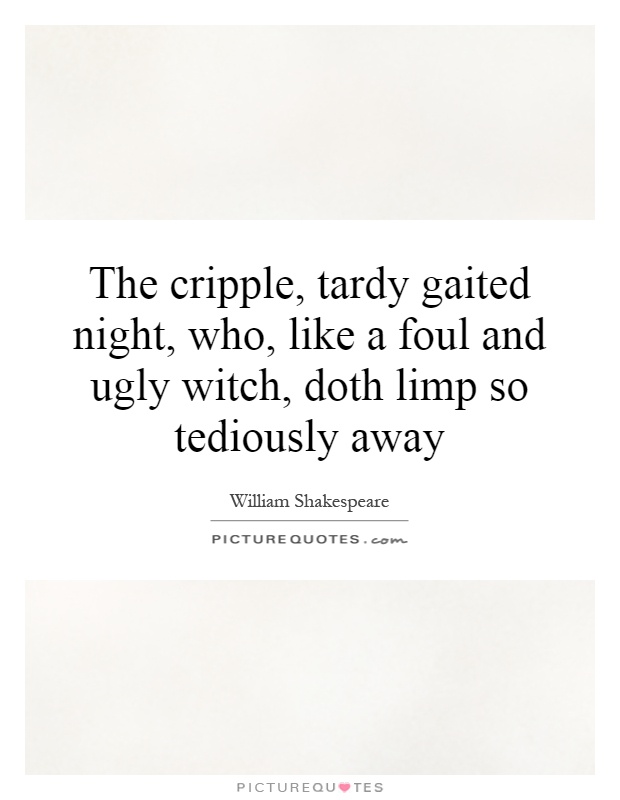The cripple, tardy gaited night, who, like a foul and ugly witch, doth limp so tediously away

The cripple, tardy gaited night, who, like a foul and ugly witch, doth limp so tediously away
In the context of William Shakespeare's works, the quote "The cripple, tardy gaited night, who, like a foul and ugly witch, doth limp so tediously away" can be interpreted as a vivid and evocative description of the passage of time and the end of day. Shakespeare was a master of using language to create powerful imagery, and this quote is no exception.The use of the word "cripple" to describe the night suggests a sense of weakness and frailty, as if the night itself is struggling to move forward. The phrase "tardy gaited" further emphasizes the slow and laborious pace at which the night progresses, as if it is limping along with great difficulty. This imagery creates a sense of heaviness and weariness, as if the night is burdened with the weight of its own existence.
Comparing the night to a "foul and ugly witch" adds a sinister and malevolent quality to the description. Witches were often associated with darkness and evil in Shakespeare's time, so this comparison suggests that the night is not only slow and cumbersome, but also potentially dangerous or threatening. The use of the word "foul" implies a sense of unpleasantness or disgust, further enhancing the negative connotations of the night.
The phrase "doth limp so tediously away" conveys a sense of inevitability and finality. The night is not just moving slowly, but it is also moving towards its end, limping towards the dawn. This creates a sense of anticipation and foreboding, as if something significant is about to happen when the night finally comes to an end.
Overall, this quote from Shakespeare paints a vivid and evocative picture of the passage of time and the end of day. Through the use of powerful imagery and evocative language, Shakespeare captures the sense of weariness, danger, and inevitability that often accompanies the closing of the night.












 Friendship Quotes
Friendship Quotes Love Quotes
Love Quotes Life Quotes
Life Quotes Funny Quotes
Funny Quotes Motivational Quotes
Motivational Quotes Inspirational Quotes
Inspirational Quotes